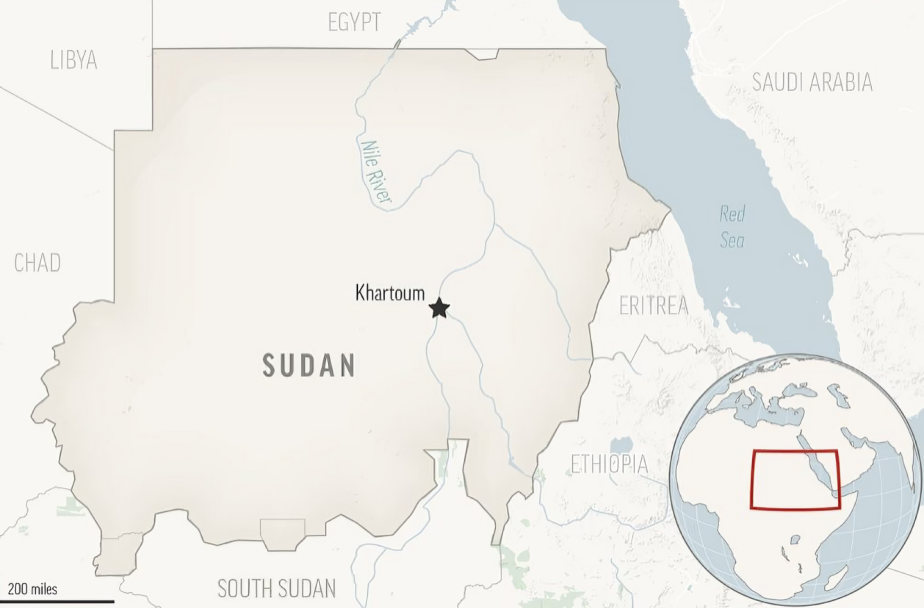- 12:13رئيس شبكة الكفاءات الطبية لمغاربة العالم يُشيد بمبادرة جلالة الملك
- 11:59عرشان ل"ولو": حزبنا غير مستهدف ولانعرف مكان اعتقال تالموست
- 11:55أزمة المياه.. توقعات باستمرار إنتاج الأفوكادو خلال الموسم الجديد
- 11:40لي أمبريال 2025.. نسخة استثنائية حول "التحول النموذجي لرجال الأعمال"
- 11:39المهرجان الدولي للفيلم بمراكش يكشف عن أعضاء لجنة تحكيم دورته الـ21
- 11:23ترامب يعيّن رئيسة حملته الانتخابية بمنصب كبيرة موظفي البيت الأبيض
- 11:02“تيك توكر” مغربية تشعل السوشال ميديا بسبب فاكهة “الكاكي”
- 10:58الأرض تهتز تحت أقدام ساكنة إقليم الحوز
- 10:43بعد صفعة فرنسا..الجزائر تتودد لاسبانيا برفع قيود تجارية ومصرفية
تابعونا على فيسبوك
Sudan's Water Crisis Deepens as Arbaat Dam Collapse Claims Lives
In a devastating turn of events, the Arbaat Dam in northeastern Sudan has collapsed, exacerbating the country's ongoing water and humanitarian crises. The Federal Ministry of Health confirmed the incident, which occurred on Saturday night due to heavy seasonal rainfall. The collapse has resulted in at least four confirmed fatalities, with local reports suggesting the death toll could rise significantly.
The Arbaat Dam, located 40km north of Port Sudan, plays a crucial role in managing floodwaters and serves as the main water supply for the city. Port Sudan, which has recently become the administrative capital due to ongoing conflicts in Khartoum, now faces potential severe shortages of drinking water.
The disaster comes at a time when Sudan is grappling with multiple challenges. The country has been experiencing heavy rainfall and floods since late June, affecting an estimated 317,000 people across 16 states. The United Nations Office for the Coordination of Humanitarian Affairs (OCHA) reports that North Darfur, River Nile, and West Darfur are among the most severely impacted regions.
Adding to the complexity of the situation, Sudan has been embroiled in a civil conflict since April 2023, with the Sudanese army fighting against the paramilitary Rapid Support Forces (RSF). This ongoing war has led to mass displacement and significant hardship for the Sudanese people.
The dam collapse has not only claimed lives but also swept away homes, leaving many stranded. Local official Ali Issa reported to Al Jazeera that several vehicles carrying families, including elderly individuals and children, were trapped by the floodwaters. Rescue efforts have been hampered by mobile network outages, making it difficult to gather accurate information and coordinate relief operations.

The situation in Sudan is further complicated by a deepening food crisis and a cholera outbreak, both exacerbated by the recent floods contaminating water supplies. As the country struggles to cope with these multiple crises, the international community's attention is urgently needed to provide humanitarian assistance and support to the affected populations.
This latest disaster underscores the urgent need for improved infrastructure and disaster preparedness in Sudan, particularly in the face of increasingly severe weather events. As the country continues to navigate its complex political and humanitarian landscape, addressing these fundamental challenges will be crucial for the safety and wellbeing of its citizens.



